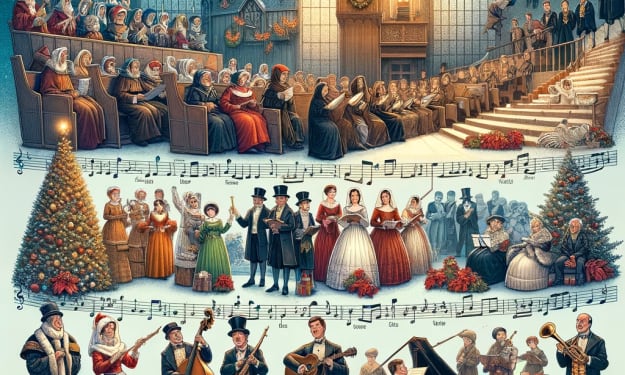The Akitu Festival
A Babylonian New Year Celebration

The Akitu festival was one of the most significant and elaborate celebrations in ancient Babylonian culture. It was a grand event lasting 11 days, held at the end of winter and the beginning of spring, coinciding with the vernal equinox. The festival marked the beginning of a new year and was seen as a time for renewal, rebirth, and hope for the future.
Origins and Significance
The origins of the Akitu festival can be traced back to the early centuries of the Babylonian civilization, around 2000 BCE. It was a central element of Babylonian religion and mythology, closely intertwined with the belief in the cyclical nature of the universe and the divine order that governed it. The festival was believed to appease the gods and ensure the well-being of the Babylonian people and their crops.
At the heart of the Akitu festival was the ritual drama of the Creation Epic, a Mesopotamian creation myth that recounted the story of Marduk, the chief god of Babylon, defeating the chaos monster Tiamat and establishing cosmic order. The ritual reenactment of this myth was seen as a means to reaffirm the divine order and ensure the renewal of the world.
The 11 Days of the Akitu Festival
The Akitu festival unfolded over 11 days, each day marked by specific rituals, ceremonies, and activities. The first five days were dedicated to purification and preparations, with priests and priestesses performing rituals to cleanse the city and the temple of Marduk. The sixth day marked the Opening of the Mouth ceremony, where a priest would ritually open the eyes and mouth of a statue of Marduk, signifying his return to the earthly realm.
The seventh day was dedicated to the Procession of the Gods, where statues of various deities were paraded through the streets of Babylon. The statues were carried on elaborately decorated floats, accompanied by music, dancing, and chanting. The procession symbolized the journey of the gods from the underworld to the upper world, marking the renewal of the divine order.
On the eighth day, the Festival of the Ram was held, with a sacrificial ram being offered to Marduk. The ram was seen as a symbol of fertility and life, and its sacrifice was believed to ensure abundance for the coming year. The ninth day was marked by the Presentation of the King, where the Babylonian king would symbolically renew his oath of office and reaffirm his allegiance to Marduk.
The tenth day, known as the Day of Decision, was a time for introspection and reflection. The king would present his deeds to the gods and seek their judgment. The eleventh and final day was the Festival of the Great Release, where all debts and prisoners were released, symbolizing the renewal of the world and the forgiveness of sins.
Impact and Legacy
The Akitu festival was a powerful and enduring tradition in Babylonian culture, and its influence extended beyond the borders of Mesopotamia. Elements of the Akitu festival were adopted by other cultures, including the Hebrew Bible and the Zoroastrian tradition. The festival's symbolic representation of the renewal of the natural world and the divine order has continued to resonate with people across different cultures and historical periods.
The Akitu festival serves as a reminder of the deep connection between human societies and their natural environment. It highlights the importance of rituals and ceremonies in maintaining a sense of cosmic order and ensuring the well-being of a community. The festival's enduring legacy speaks to its ability to capture the essence of renewal, rebirth, and hope for the future, themes that remain relevant and meaningful across time and cultures.
**********************************************************************
Discover more insightful reads and expand your knowledge by exploring our related articles – each one offers a unique perspective and in-depth information on a range of fascinating topics. Click on the articles below to continue your journey of discovery!
Bhogi Pongal’s harvest festival
The traditions defining Makar Sankranti's observance
Pongal a festival of harvest in Tamil Nadu
About the Creator
Festive Fusion Finds
My insatiable curiosity about the world we live in and passion for uncovering its history and traditions drive me to explore the world we live in. I enjoy wandering through the pages of time, exploring how our world has been shaped by them.






Comments
There are no comments for this story
Be the first to respond and start the conversation.